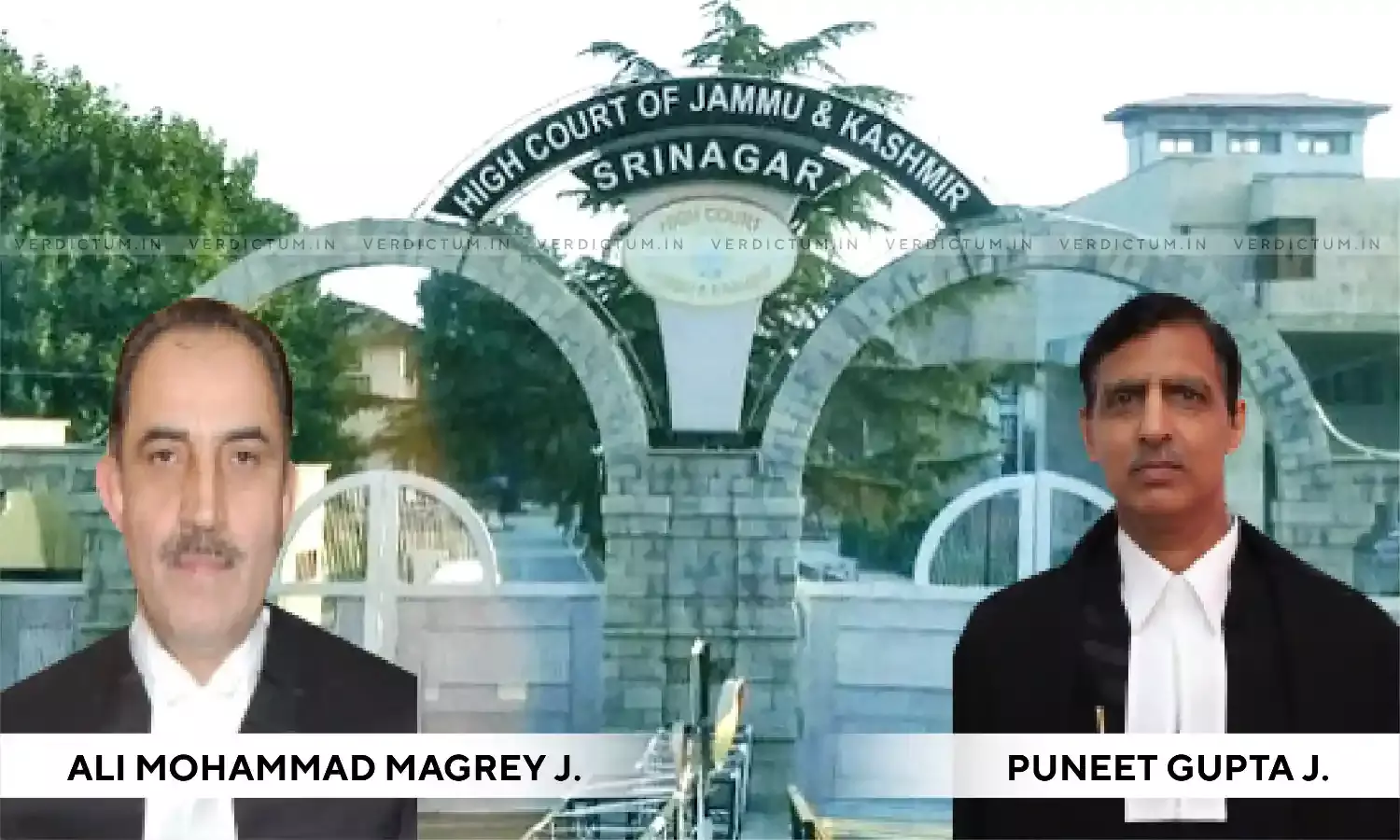Unauthorized Absence Cannot And Must Not Amount To Automatic Cessation Of Service Even In Case Of Probation – J&K&L HC

The Jammu and Kashmir and Ladakh High Court has held that unauthorized absence cannot and must not amount to automatic cessation of service even if the delinquent is a probationer.
The Division Bench comprising Justice Ali Mohammad Magrey and Justice Puneet Gupta held –
"The unauthorized absence cannot and must not amount to automatic cessation of service even if the delinquent is a probationer. The law on the point is no more res integra. The Hon'ble Supreme Court in case titled V. P. Ahuja v. State of Punjab and others reported as AIR 2000 SC 1080 decided on 9th March, 2000, has held that a probationer, like a temporary servant, is also entitled to certain protection and his services cannot be terminated arbitrarily."
The Court also held that the course adopted by the Respondents in terminating the services of the Petitioner under Rule 21-1-B of the CCA Rules 1956 is uncalled for and declared to be bad in law.
In this case, the Petitioner's services were terminated owing to his alleged unauthorized absence from work, and disciplinary action was initiated against him. The Petitioner replied to the notices served upon him stating that he isolated himself as he had developed covid symptoms and could not attend office for his ill health. Thereafter, an apology was also tendered by him for the same.
Senior Counsel Mr. Faisal Qadri appeared for the Petitioner while Senior Counsel Mr. N. A. Beigh appeared for the Respondents before the High Court.
The Court noted that the Petitioner was holding the post of Orderly against a clear vacancy and while on probation, his services were terminated on the charges of absence from duty.
The Bench further while holding so, observed –
"The power available with the competent authority under the said Rule is only to discharge the probationer from probation in the event the performance is found not satisfactory which is not the case set out against the petitioner."
Furthermore, the Court held, "…the plea taken by the petitioner in support of his defence that he had developed covid-19 symptoms, therefore, followed the standard procedure and stayed off to prevent others getting infected cannot be just brushed aside as the horrible situation emerging in view of the Covid-19 Pandemic at the relevant time has to be taken into consideration while taking a call on the issue."
"The other important aspect of the matter is that the provision of law pressed into service by the respondents does not call for termination of a probationer on his unauthorized absence. The power, as observed hereinbefore, available with the competent authority under the said Rule is only to discharge the probationer from probation in the event his performance is not found satisfactory which is admittedly not the case set out against the petitioner. The petitioner has been proceeded against on account of unauthorized absence and not on unsatisfactory performance, therefore, the very provision of law, on which the order of termination is based, is against facts and irrational," the Court opined.
The Court also held that the Respondents have grossly erred in law in inflicting the punishment of upon the Petitioner on account of alleged five days unauthorized absence as the allegation is not so grave to attract the major punishment of the kind adopted by the respondents.
"The gravity of the charge determines the severity of the punishment but in the instant case that principle also has not been followed. The proportionality refers to regulating the exercise of fundamental rights, the appropriate or least restrictive choice of measures as the case may demand," the Court held.
The Bench placed reliance on Manzoor Ahmad Bhat v. Union of India where the Coordinate Bench of the J&K&L High Court had held that the dismissal from service for the un-authorized absence of 10 days is not proportionate with the gravity of the charge leveled.
Accordingly, the Court quashed the termination order and restored the Petitioner to continue in service with all service benefits.
Click here to read/download the Judgment

